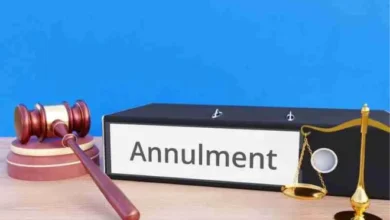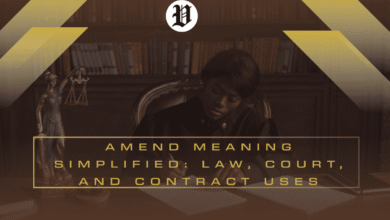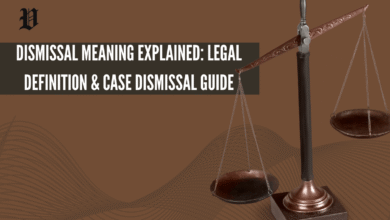Las Vegas Real Estate Law: Your Guide to Playing It Safe in Property Deals

Imagine yourself on the Las Vegas Strip, the neon glow pulling you in, and you’re dreaming of snagging a piece of this desert oasis—maybe a chic condo with a killer view, a family-friendly house in the suburbs, or a commercial spot to cash in on the tourist crowds.
It’s a thrilling ride, no doubt, but let’s be real: real estate in Vegas is a gamble if you don’t know the rules. One misstep could cost you big—think hidden liens, lawsuits, or a deal gone bust. That’s where Las Vegas real estate law comes in, your ace in the hole for staying protected.
Whether you’re a first-time buyer, a seller ready to cash out, or an investor hunting for a hot deal, this guide’s got your back. We’ll walk you through the basics, point out the traps, and share tips to keep you safe. Ready to make a smart bet? Let’s dive in.
Understanding Las Vegas Real Estate Law
Real estate law in Las Vegas is built on Nevada’s framework, which keeps things fair and square but can feel like a maze if you’re not prepared. The Nevada Revised Statutes (NRS), like Chapter 111 for property transfers and Chapter 116 for condos and HOAs, set the stage for every deal. Whether it’s a cozy bungalow, a downtown high-rise, or a retail strip, the law demands clear contracts, honest disclosures, and sticking to your promises.
Contracts are the heart of it all—laying out the price, timeline, and “what-ifs” like repairs or loan issues. Sellers have to come clean about any problems, like a cracked foundation or past floods, thanks to NRS 113.100. Buyers need to do their homework but get backup from laws to avoid getting burned. Skip the fine print, and you’re begging for trouble—think fraud or contract breach lawsuits. It’s all about playing fair so everyone walks away happy.
Here’s a quick rundown of the paperwork you’ll run into:
| Document Name | What It Does | Who Handles It |
|---|---|---|
| Purchase Agreement | Lays out the deal’s terms, price, contingencies, and closing details | Buyer’s or seller’s agent/attorney |
| Seller’s Disclosure Statement | Lists known issues, like leaks or repairs | Seller (often with agent help) |
| Title Report | Shows the property’s ownership history and any liens | Title company |
| Deed (e.g., Warranty Deed) | Transfers ownership, sometimes with title guarantees | Seller’s attorney or title company |
| Escrow Instructions | Guides the escrow agent on handling money and docs | Escrow company |
| Closing Statement (HUD-1 or ALTA) | Breaks down all closing costs and fees | Escrow or title company |
| HOA Documents | Covers bylaws, fees, and rules for HOA properties | HOA management |
Don’t just breeze through these—they’re your shield against deal-breaking surprises.
Common Legal Risks in Property Transactions
Vegas might sparkle, but real estate deals can dim fast if you’re not careful. Trouble like title disputes, sneaky liens, zoning mix-ups, or flat-out fraud can creep up, thanks to bad records, shady players, or simple mistakes. These can spark fights that drain your wallet and your patience.
Title disputes happen when someone else claims a stake in your property—maybe an old heir or a boundary goof. Hidden liens are debts, like unpaid taxes or contractor bills, that stick to the property. Zoning rules can mess with your plans, like turning a commercial lot into a residential dead-end. And fraud? In a city of smoke and mirrors, it’s no shock some folks might stretch the truth about a property’s shape.
Here’s how to spot and steer clear of these traps:
| Risk Type | What It Is | How to Dodge It |
|---|---|---|
| Title Disputes | Someone else claims ownership, often from past deals or inheritance | Run a title search and grab title insurance to cover disputes |
| Undisclosed Liens | Hidden debts tied to the property, like taxes or bills | Scrutinize the title report and insist on a clean title |
| Zoning Issues | Rules that limit how you can use the land, like residential-only zones | Check Clark County zoning laws or hire a pro to do it |
| Fraud or Misrepresentation | Lies about the property’s condition, history, or value | Double-check everything with inspections, appraisals, and expert advice |
| Environmental Hazards | Hidden problems like flood risks or contamination | Get environmental checks and read disclosures like a hawk |
| Contract Breaches | Someone bails on deal terms, like missing closing dates | Have a lawyer review contracts and add solid contingency clauses |
Knowing these risks is half the battle—catch them early, and you’ll save yourself a headache.
Steps to Protect Yourself in Las Vegas Real Estate Deals
How do you keep the odds in your favor? It’s not brain surgery, but it takes some hustle. First, get a real estate attorney on board from the jump. Nevada doesn’t make you, but skipping one’s like betting it all on a hunch. They’ll pore over contracts, spot trouble, and make sure you’re legit with state laws.
Always do a title search with a trusted title company to sniff out liens or disputes. Don’t skimp on inspections—get pros to check for structural issues, pests, or radon, especially with Vegas’s tricky soil and weather. Read contracts like your life depends on it, and push for contingencies, like bailing if the loan flops or repairs don’t happen.
Buyers, stick to what you can afford: Get pre-approved and budget for closing costs (2-5% of the price). Sellers, be upfront with disclosures to dodge lawsuits—honesty pays off. Investors, dig into market trends and think about LLCs for liability protection, especially with commercial spots where tenant rules get sticky.
Pro tips: Use escrow to keep funds safe, put everything in writing (talk is cheap in court), and check out the Nevada Real Estate Division for market updates. Take your time, ask hard questions, and don’t sign until you’re rock-solid sure.
People also see: Breaking a Lease Due to Domestic Violence or Harassment: A Legal Guide
Role of Real Estate Agents and Attorneys in Las Vegas
Going it alone in Vegas real estate is like hitting the slots blindfolded—you might luck out, but don’t count on it. Real estate agents are your street-smart guides, tackling listings, showings, negotiations, and MLS rules, plus keeping things kosher with fair housing laws. But they’re not lawyers, so don’t lean on them for legal fixes.
Real estate attorneys are your heavy hitters, digging into contracts, hammering out terms, and stepping in for disputes. They’re clutch for complex deals like foreclosures or HOA properties, making sure you’re covered under Nevada law.
How to pick ‘em? Ask around—friends or the State Bar of Nevada are good starts. Go for pros who know Vegas inside out; check their rep on sites like Avvo or the Better Business Bureau. Sit down with a few, ask about their experience with deals like yours, their fees (lawyers might charge hourly or flat), and how they keep you in the loop. Pick someone who’s straight-up and easy to talk to—you need a teammate, not a riddle.
Recent Legal Trends in Las Vegas Real Estate
Vegas’s real estate scene is always on the move, and 2025’s new laws are shaking things up. Fair housing rules are tougher now, with stronger renter protections and stricter landlord policies on discrimination and accessibility. Rental laws got a makeover too: Landlords have to offer a no-fee rent payment option, give payment plans for late fees, and refund unused application fees if you don’t get the place.
Property laws are smoothing out with updates to easements and loan mods for faster deals. There’s a new tax break for “agrivoltaic” land—think farms with solar panels. Probate laws are also tighter to protect heirs during property handoffs. These changes aim for fairness in a market still riding economic waves. Buyers and investors in growing areas like the suburbs should watch how these affect zoning and loans.
Stay sharp—talk to your lawyer to see how these changes hit your deal.
People also see: Civil Cases Explained: Lawsuits, Examples & Modern Trends
FAQs
What are the key legal documents in a Las Vegas real estate transaction?
Purchase agreement, seller’s disclosure, title report, deed, escrow instructions, closing statement, and HOA docs if needed.
How can buyers ensure a property has a clear title in Las Vegas?
Hire a title company to run a search, check the report for liens or claims, and get title insurance for backup.
What legal obligations do sellers have when disclosing property information?
NRS 113.100 says sellers must list known issues like damage or floods in writing to avoid legal fights.
How do zoning laws affect property purchases in Las Vegas?
They control land use (like residential or commercial), affecting value or plans; check Clark County rules.
What should investors know about commercial property law in Las Vegas?
NRS 118C covers leases, tenant rights, and upkeep; watch zoning, lease terms, and improvement deals.
How can a real estate attorney protect me during a transaction?
They check contracts, spot risks, ensure legal compliance, negotiate, and handle disputes to keep you safe.
Are there specific Nevada laws protecting first-time homebuyers?
No special laws, but programs like Home Is Possible give up to 5% down payment help with income and credit rules.
How are property disputes typically resolved in Las Vegas?
Try negotiation or Clark County mediation first; then arbitration or court for stuff like boundaries or HOAs.
What legal risks exist when buying foreclosed properties?
They’re as-is, with possible damage, liens, or no inspections; auctions can jack up prices; mediation’s an option.
How do recent changes in Nevada real estate law affect property transactions?
2025 brings better renter protections, rental fee changes, easier easements/loans, agrivoltaic tax breaks, and probate safeguards for fairer deals.
In the end
Las Vegas real estate is a wild ride full of possibilities, but you’ve got to play smart. Get clued in, team up with pros you trust, and treat every deal like a big bet. Knowing the laws, dodging traps, and staying on top of changes will keep your investment safe and your stress low. So go for that Vegas dream—just do it with clear eyes and a solid plan. You’ll thank yourself later when you’re cashing in without a hitch.





One Comment